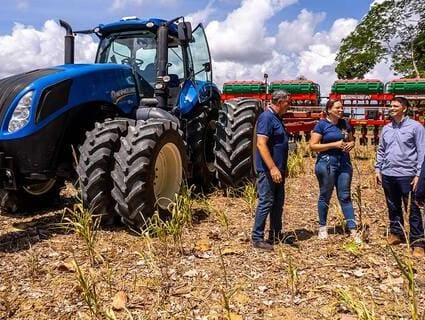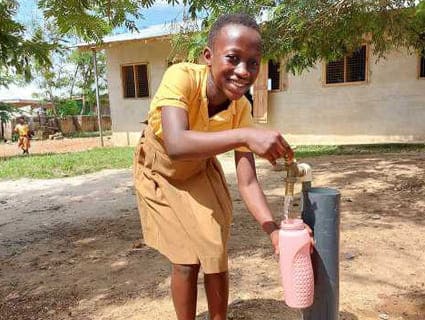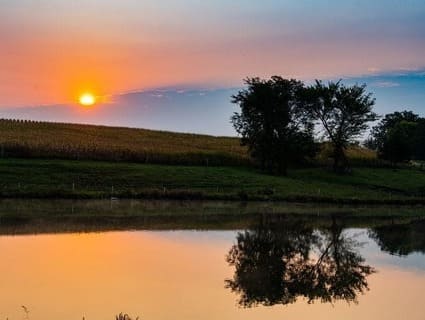5 reasons why clean water is important
Read Time: 5 minutes
March 22, 2024
Updated: March 22, 2024
Clean water is an essential resource for communities around the world.
People use it for drinking, bathing, cooking, growing food and much more.
But in some rural areas, people struggle to get enough water for a healthy life.
Exactly how many people lack access to clean water? What are the barriers? What can we all do about it?
Here are five things you should know about the importance of clean water access.
1. More than 2 billion people lack access to safe drinking water
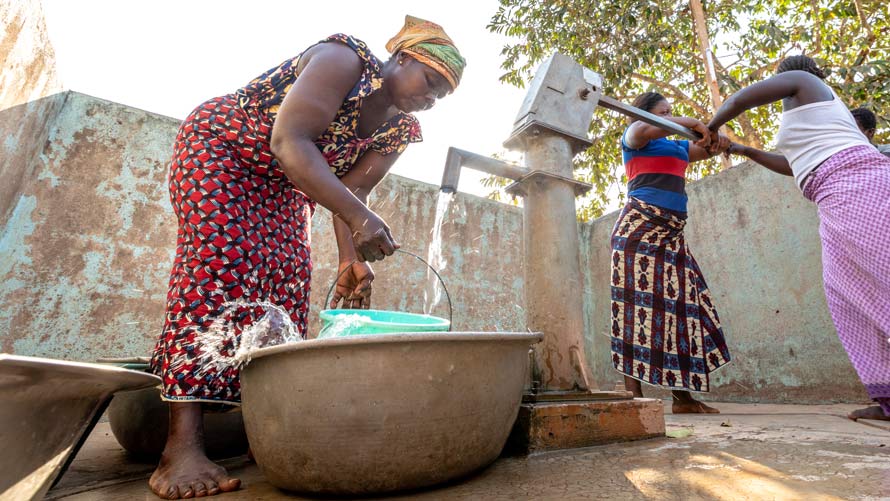 Despite progress in recent years, 2 billion people still lack access to safely managed drinking water. Contaminated water brings health risks, including waterborne diseases.
Despite progress in recent years, 2 billion people still lack access to safely managed drinking water. Contaminated water brings health risks, including waterborne diseases.
Yes, progress has been made in recent years to provide more people access to clean water.
Between 2015 and 2020, for example, more than 100 million people gained access to safely managed drinking water.
The Centers for Disease Control and Prevention defines safe drinking water as clean, accessible and contamination-free. It should come from reliable water sources that are available at home.
But 2.1 billion people still lack access to safe, available water at home. Many people do not have clean drinking water and cannot access it from a safe source in under 30 minutes. The United Nations says water challenges like scarcity, pollution and degraded water ecosystems are partly to blame.
2. Water access, sanitation and hygiene go hand in hand
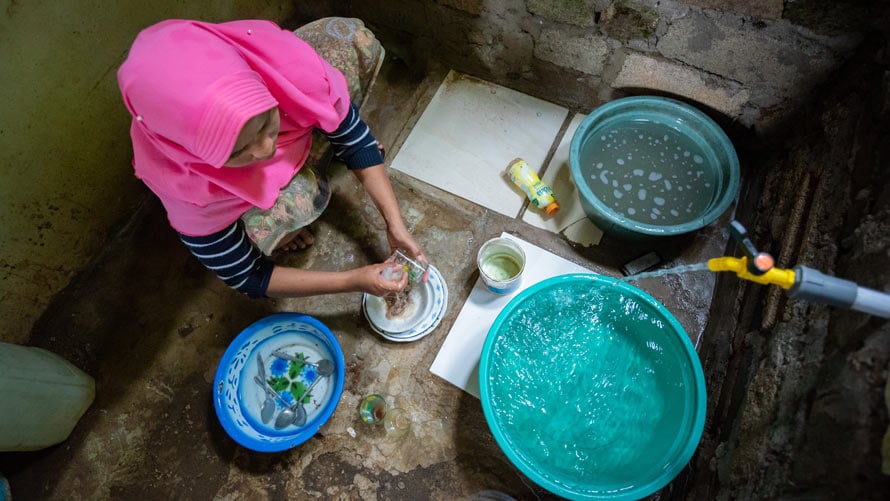 Improving access to clean water and sanitation is the focus of United Nations Sustainable Development Goal 6. (Photo courtesy of Water.org)
Improving access to clean water and sanitation is the focus of United Nations Sustainable Development Goal 6. (Photo courtesy of Water.org)
People need safe water to drink, wash their hands and cook their food. That is why access to clean water as well as sanitation and hygiene — together called “WASH” — go hand in hand.
When communities do not have all three, the consequences can be dire. They may miss school, succumb to waterborne disease or even be at risk of death. Around the world:
-
844 million people do not have basic drinking water
-
2.3 billion people do not have access to basic sanitation
-
3.5 billion people lack access to a safe toilet
That is why UN Sustainable Development Goal 6 focuses on achieving universal access to clean water and sanitation. In fact, the UN says progress needs to increase fourfold or else billions of people will lack access to safe water, sanitation and hygiene by 2030.
3. Water access and the climate crisis are connected
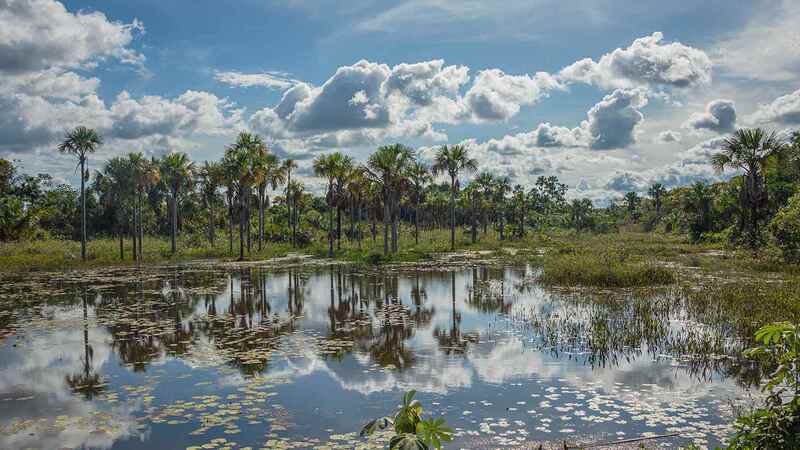 The challenges with climate change and water access have a connection.
The challenges with climate change and water access have a connection.
The climate crisis and water access challenges have a connection.
Climate change involves long-term shifts in temperatures and weather patterns.
On one hand, climate change can worsen water challenges. About half of the world’s population experiences water scarcity for at least part of the year. The Intergovernmental Panel on Climate Change predicts that the numbers will increase because of climate change and population growth.
On the other hand, practices that improve water quality and availability can help build climate resiliency. Providing access to water supply and sanitation systems that can withstand climate impacts could save the lives of 360,000 infants per year, according to the UN.
4. Water creates ripples of change for communities
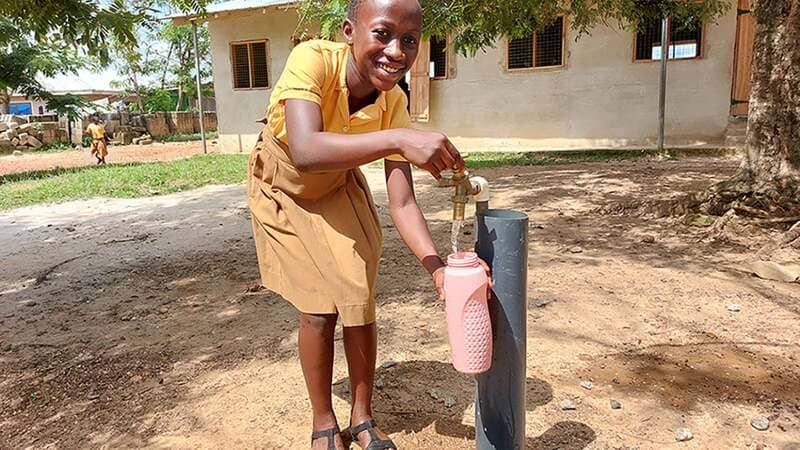 Obaa, a student in Ghana, fills her water container on her school grounds from a water point constructed through our Cargill Currents project.
Obaa, a student in Ghana, fills her water container on her school grounds from a water point constructed through our Cargill Currents project.
In southwestern Ghana, 11% of people drink unsafe water.
But thanks to a new water well on her school grounds, 12-year-old Obaa is not among them. “Now that we have proper water supply in our school, I am happy,” Obaa says. “I can concentrate on my studies and not worry about fetching water.”
In the neighboring region of Nzemea Nkwanta, cocoa farmer Stephen Akubila now has more time to grow food because of a new water system. He no longer needs to walk long distances for clean water.
These interventions show how access to clean water can create significant change in communities. It can help improve health and well-being through proper WASH; build climate resiliency; strengthen farmers’ livelihoods; and support women’s empowerment.
5. We need water to grow the world’s food
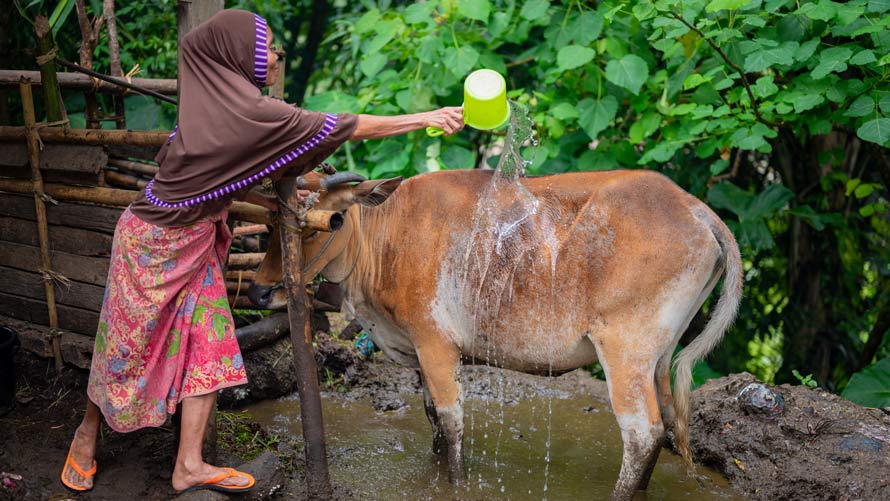 About 70% of the world’s fresh water is used to produce the food we eat. (Photo courtesy of Water.org)
About 70% of the world’s fresh water is used to produce the food we eat. (Photo courtesy of Water.org)
We use about 70% of the world’s fresh water to produce the food we eat.
According to the Food and Agriculture Organization (FAO), it takes between 2,000 and 5,000 liters of water to make one person's daily food. And our population is growing — which means farmers will need more water to grow food that feeds more people.
However, we can use only a small percentage (0.003%) of the world’s water for agriculture (as well as for drinking and hygiene). And the FAO says farmers cannot access it all. In addition, some regions of the world are short on water while others lack the infrastructure or other means to access it.
This puts additional pressure on farmers to increase productivity while conserving water and protecting this important natural resource.
What are we doing to improve access to clean water?
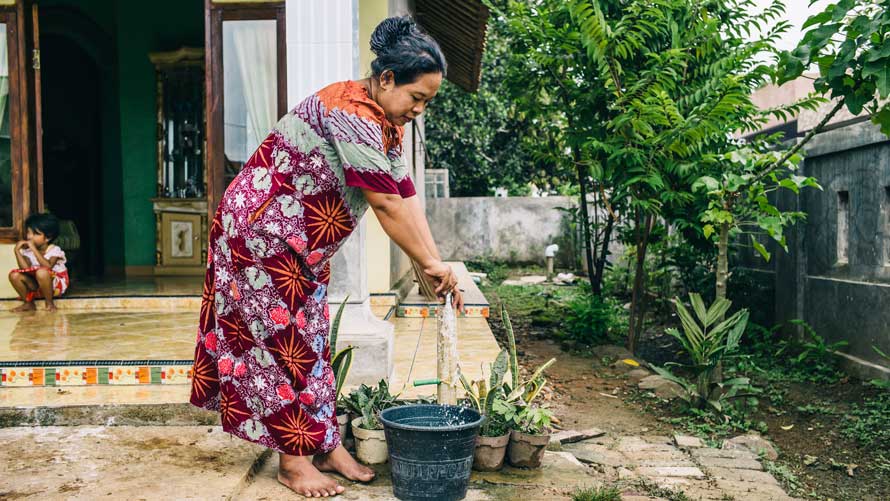 We are focused on enabling improved access to safe drinking water and sanitation. Our goal is to reach 500,000 people in priority communities by 2030. (Photo courtesy of Water.org)
We are focused on enabling improved access to safe drinking water and sanitation. Our goal is to reach 500,000 people in priority communities by 2030. (Photo courtesy of Water.org)
To help address water access challenges, we prioritize improving access to safe drinking water and sanitation services. Our goal is to reach 500,000 people in priority communities by 2030.
Cargill has joined organizations working to improve WASH, such as WASH4Work and the Water Resilience Coalition. We also partner with organizations like Global Water Challenge, CARE and Water.org to help provide water access in Brazil, India, Indonesia, the Philippines and West Africa.
Here are some ways we’re helping with water access today
-
We are working with Water.org to help 300,000 people in Indonesia and the Philippines access safe water and sanitation. Our partnership will support Water.org’s solution — called WaterCredit — that works with local financial institutions to make small, affordable loans available to people in need.
-
We have joined the Water Resilience Coalition’s Women + Water Collaborative to improve access to clean water and sanitation for people in India.
-
We are working with Global Water Challenge to help more than 40,000 people in Brazil with improved WASH. The projects also bring other socio-economic benefits beyond water access, including empowering more than 15,000 women.
-
We provide farmers like Stephen Akubila and his community in Ghana with water access as part of Cargill Currents. The partnership with Global Water Challenge supports WASH access and enhanced water security for 150,000 people across Brazil, Cameroon, Côte d’Ivoire, Ghana, India and the U.S.
Beyond water access, sanitation and hygiene
As a connector of the food system, Cargill has the unique ability to develop water solutions that can make an impact on a large scale. Our global ambition is to enable a water-positive impact in our operations, supply chains and communities by 2030.
Our commitments are:
- In our operations: Implement water stewardship practices at all 72 priority facilities by 2025.
- In our supply chains: Enable restoration of 600 billion liters of water and reduction of 5,000 metric tons of water pollutants in water-stressed regions by 2030.
- In our communities: Enable improved access to safe drinking water and sanitation, reaching 500,000 people in priority communities by 2030.
Learn more about our water sustainability priorities.
More stories
Healthy soil, water and farmland: How we’re building sustainable supply chains
From corn fields in Nebraska to schools in Indonesia, Cargill is working to create more sustainable supply chains around the globe.
Ripple effects: Connecting farmers and communities with safe, clean water
Water access is a challenge for thousands of rural farmers and agricultural communities around the world
Global challenges, local solutions. When it comes to water, Cargill — and agriculture — is ‘holding the key.’
Cargill’s global sustainability director for water explains how.

